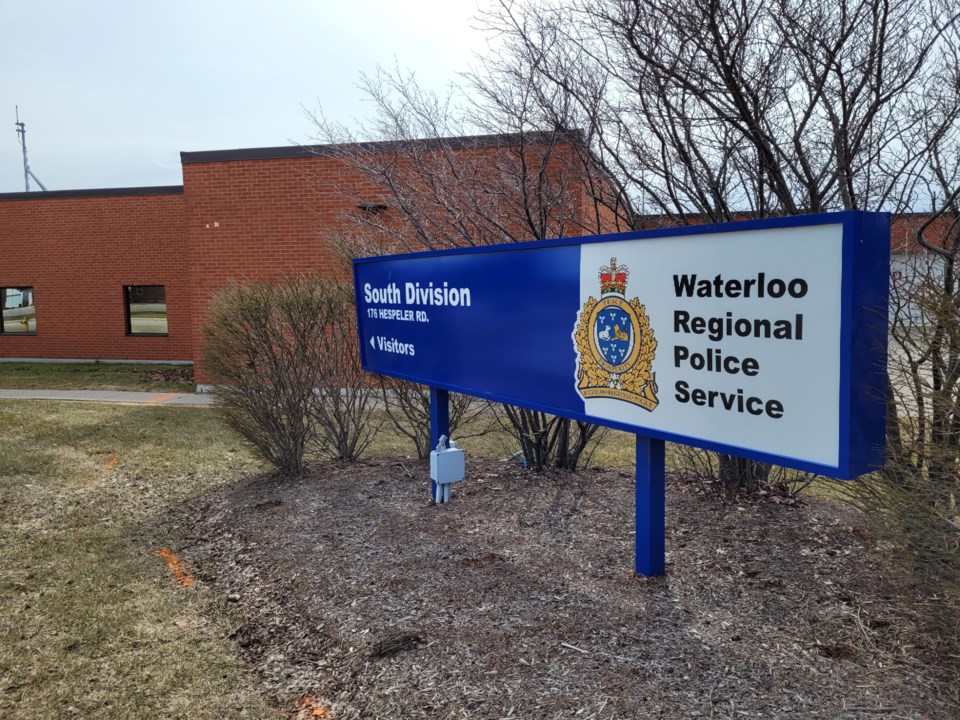The Waterloo Regional Police Services Board voted Wednesday to approve the Race-Based Data Collection (RBDC) Strategy to help build a safer and more inclusive region.
The aim of the strategy is to collect, examine and disaggregate race-based data to identity racial and related disparities in police-civilian interactions.
Strategy goals include eliminating systemic racism in the delivery of services in policing, promoting transparency and accountability, and enhancing Black, and other racialized and Indigenous communities’ trust in policing throughout the Waterloo Region.
This will involve working with Waterloo Regional Police Service (WRPS) members, community members, and the policing community to gain a better understanding of the context underlying the data.
WRPS entered into a three-year academic partnership with Dr. Lorne Foster and Dr. Les Jacobs to support the Service’s implementation of a Race-Based Data Collection Strategy in January. Dr. Amanda Williams joined WRPS as a Data Analyst, Equity, Diversity, and Inclusion in March to support the RBDC Strategy.
The strategy and the partnership evolved in response to the Anti-Racism Act, a provincial law passed in 2017 that requires institutions, such as police, to collect race-based data to measure, monitor and eliminate systemic racism.
Police have collected and released data on intelligence notes and use of force to try to address systemic racism in the service, as required by the province.
“Racism and discrimination is a longstanding problem in all of our systems including policing, justice, health, education and so on. The policing community is taking active measures and a leadership role,” Williams said at the board meeting on Wednesday.
“Focusing on the organization as compared to individuals, will have the most impact on changing behavior. We are using data to look at problems and solutions. It’s a forward-looking approach that seeks to change the underlying factors that contribute to disparities,” Williams said.
Williams said altering the environment and altering the policy, led to the greatest change in behavior across the organization.
“A human rights approach promotes high quality data and dialogue. Everyone including community members, police officers and other agencies can help in problem solving and solution generation to create a road map that will seek to eliminate racism and discrimination,” Williams said.
“We welcome feedback from the community. Sharing trustworthy findings will result in actionable insights that address issues of highest concern to the community.”
The strategy is important to improving transparency and accountability in how policing services are delivered and necessary for continuing to build community trust and engagement.
Observed patterns within the data will help to determine the scope of the problem and whether individuals with particular social identities are disproportionately represented.
This will also help determine training needs and track what approaches to service delivery work across different communities and serve as a starting point for conversations with community and WRPS members to strengthen trust, accountability and transparency.
“We are partnered with the EDI unit and we have eagerly been awaiting the arrival of Geraldine Stafford. She will have a large leadership role in our Race-Based data Collection Strategy,” said Karen Redman, chair of the Waterloo Regional Police Services Board.
The Waterloo Regional Police Service’s Equity, Diversity and Inclusion (EDI) Unit was inaugurated in 2017 and began to lead the service in actively pursuing a diverse and inclusive workforce, as well as creating equitable outcomes for members of the community.
After an extensive search, Geraldine Stafford has been selected as the new manager of the Waterloo Regional Police Service EDI Unit.
I’m so very excited about the progressive nature of Waterloo Regional Police Services. I’m being parachuted into something so great. I’m excited to be a part of it and to be an agent for change,” Stafford said.
Implementation of the WRPS RBDC Strategy is an objective of the 2021-2023 Strategic Business Plan, intended to increase transparency and community trust using data and technology. The Strategy is also aligned with the EDI plan 2020-2022 by demonstrating commitment to total community engagement and developing diversity.
The Board recognizes that race-based data collection, analysis, and reporting are necessary for assessing whether there is fair and equitable treatment within policing services.
Other police services in the province are also developing similar strategies.
“This is really exciting,” Redman said.
“If other police boards are doing this too, then we will be able to compare and contrast and chart our progress on a bigger scale, so that’s good to hear."



.png;w=120;h=80;mode=crop)